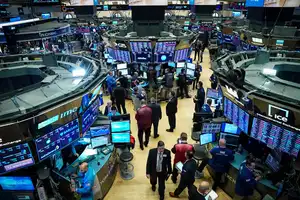While both futures and CFD trading offer access to a wide range of assets, including stock indices and commodities, the way they operate and handle contract expirations differs.
CFD trading can provide traders access to cash-based derivatives, which represent the pure present value of the underlying assets. These cash-based derivatives eliminate the need to roll over contracts, as seen in futures trading, and they are continuous, allowing traders to hold positions without worrying about contract expirations.
With cash-based derivatives, CFD traders can take advantage of the current value of the underlying assets without the complexity of dealing with futures contract expirations. CFD brokers typically cover these positions by trading on the futures market, effectively providing their clients with access to cash-like trading.
Additionally, cash-based CFDs may offer tighter spreads compared to futures-based CFDs. Spreads play a crucial role in trading, as narrower spreads reduce trading costs and can be more appealing to traders.
However, it’s important to note that both futures trading and CFD trading have their unique advantages and disadvantages. Some traders may prefer futures trading for its ability to trade actual contracts and potentially profit from price movements over different contract periods. Others may find cash-based CFDs more convenient for their trading strategies and risk management.

Ultimately, the choice between futures and CFD trading depends on the individual trader’s preferences, trading objectives, and risk tolerance. Each approach has its merits, and traders should carefully consider their needs and goals before deciding which type of trading suits them best.
CFD Trading is Even Less Regulated than Futures Trading
Futures trading, as a form of derivative trading, involves placing bets on the future price of an underlying asset, without taking actual possession of the asset. Futures traders put up deposits to cover potential losses, and their account balances are adjusted daily based on the outcome of their trades.
On the other hand, CFD trading also involves placing bets on the price movements of underlying assets, but instead of trading with other traders, CFD traders bet against the CFD broker, who acts as the counterparty in the trades. CFD brokers may or may not take positions in the market to manage their exposure, but the trades made by clients are managed in-house.
Both futures brokers and CFD brokers are regulated, but futures trading is subject to relatively more regulation compared to CFD trading. Futures exchanges have been involved in lengthy battles with regulators, resulting in a less tightly regulated market than traditional securities.
While futures traders may argue that the clearing process in futures reduces counterparty risk, it’s important to recognize that third-party counterparties introduce their own risks. In contrast, CFD trading with a reputable broker may reduce counterparty risk, as the broker becomes the sole counterparty, and it’s crucial to choose a reliable and financially stable broker to minimize this risk.
Indeed, selecting the right CFD broker is essential, given the direct interaction with the broker and the reliance on their financial stability. Traders should carefully research and choose a reputable CFD broker with a proven track record to ensure a smooth trading experience and mitigate potential risks.
CFD Trading Offers Much More Flexibility than Futures Trading
In futures trading, contracts are standardized, and traders are committed to entering into contracts for a specific quantity of an asset, such as one lot or a mini lot. This standardization is necessary as futures contracts involve trading with a third party, and standardized lots ensure consistent trading practices in the market.
On the other hand, CFD trading allows traders to customize their trade sizes, giving them the flexibility to enter positions with the exact quantity they desire. This ability to customize trade sizes is a significant advantage, especially for smaller traders who may not have the means to trade larger contracts or feel comfortable with large positions.
CFD trading offers the option to trade with smaller position sizes, enabling traders to test their strategies and learn without exposing themselves to excessive risk. This is especially important for newer or less experienced traders who may not yet be confident in their trading abilities.
Additionally, CFD trading often has lower entry barriers, allowing traders to start with smaller amounts of capital. It provides a more accessible avenue for traders who may not have the financial resources to engage in traditional futures trading.
The competitive trading costs and commission-free trading offered by some CFD brokers also make it an attractive option for many traders, especially when compared to traditional futures trading with fixed commissions.
As traders become more accomplished and experienced, they may choose to stick with CFD trading due to its flexibility and cost advantages, especially for those who do not require the specific benefits offered by futures trading.
However, it’s essential for traders to thoroughly research and choose a reputable and reliable CFD broker to ensure a safe and positive trading experience. Selecting the right broker is crucial, regardless of whether one chooses to trade futures or CFDs.




